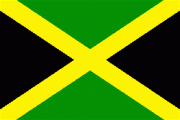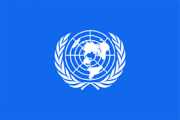Hon. Winston Dookeran, Minister of Foreign Affairs of Trinidad and Tobago,
Fellow panellists
Ladies and Gentlemen,
Good Afternoon.
I would like to commend the Government of Trinidad and Tobago on its initiative in convening this panel on the important topic of Women, Disarmament, Non Proliferation and Arms Control. I would also like to thank my fellow colleague, Minister Dookeran, for his kind invitation to me to participate in these discussions.
Jamaica’s has a keen interest in this issue and we were among the co-sponsors of resolution 65/69 on women, disarmament, non-proliferation and arms control which was introduced by my fellow CARICOM member state, Trinidad and Tobago, in December 2010.
We are pleased that the international community will once again address this issue during the current session of the General Assembly and hope that renewed emphasis will be placed on including more women in the decision making process concerning disarmament, non proliferation and arms control.
Numerous reports have attested that women and girls disproportionately suffer serious human rights violations during armed conflict and wars which also lead to the displacement of families.
While Jamaica and countries in the CARICOM region are not affected by armed conflict, we face an insurmountable challenge as it relates to armed violence in many of our countries. According to statistics available within CARICOM, approximately 70% of the homicides committed in the region feature the use of a firearm. While most of the men are often the victims of gun crimes, women are often left to become the sole breadwinner for families and to deal with the resulting emotional and mental trauma.
Our geographical location and porous borders make us, like many other countries in the region, susceptible to the illicit trade in small arms and light weapons. The nexus between the illicit trade in arms and the illegal drug trade further compounds the situation, and takes a significant toll both on the economy and the human and social fabric of the society. The climate of insecurity which is generated contributes to social dislocation, and affects, the vulnerable in the society including young persons and women.
We are committed to tackling this scourge. We recognise, however, that a multifaceted approach is required.
The UN Programme of Action to Prevent, Combat and Eradicate the Illicit Trade in Small Arms and Light Weapons (POA), and the International Tracing Instrument (ITI), are the most comprehensive instruments to date ,for addressing the illicit trade in small arms and light weapons, as well as elements related to marking and tracing.
I am particularly pleased to speak on the measures which we have taken at the national level in keeping with the Programme of Action, to combat the illicit trade in small arms and light weapons. Of note are the following:
- We are in the process of developing a Small Arms Policy to stem the flow of illicit weapons into the country. The Policy will take into account the requirements of international treaties as well as politically binding instruments such as the Programme of Action (POA), for the control of firearms, their parts and components and other related materials as well as explosives. A first draft of the Policy has been developed and has been circulated to a number of stakeholders, including civil society organizations, for comments.
- Likewise, we are in the process of reviewing the Firearms Act which is expected to refine the legislative framework to combat the availability of illegal firearms in Jamaica. In addition, amendments have been made to the Fingerprints Act, Larceny Act (specifically with regard to strengthening the offence of extortion) and the Evidence Act to strengthen the powers of the police in the apprehension of criminals;
Ø We have also expanded the Community Policing Programme to include several new communities island-wide. We continue to emphasize the important contribution of all members of the community including women, to these programmes. In keeping with this thrust, the Ministry of National Security in collaboration with stakeholders, is currently working to develop a comprehensive Community Safety and Security Strategy. This Strategy is expected to take a sustained and coordinated approach to social intervention programmes. The Strategy will cover critical areas such as prevention, rehabilitation and reintegration.
- Other measures include the adoption of a National Crime Prevention Strategy of which violence prevention and the control of small arms are key components. The establishment of the Firearm Licensing Authority (FLA) in 2005 seeks to ensure higher levels of control and efficiency with respect to the granting, refusal and revocation of firearm user’s licences, permits and certificates to private citizens and private security companies. We have also recently approved the establishment of a National Small Arms Coordinating Commission in keeping with provisions of the United Nations Programme of Action.
Ø Of note is the fact that the National Policy for Gender Equality (NPGE) which was approved on March 8, 2011, includes targets and indicators to be accomplished by the Ministry of National Security relating to the design and implementation of a comprehensive crime plan. This entails the following:
· strategies to address gender-based violence and other forms of violence against women;
· the establishment of a safe house and a 24-hour hotline to temporarily assist victims of human trafficking; and,
· the use of temporary special measures to increase the representation of women in the Jamaica Constabulary Force[1].
Despite our efforts however, there is need for technical assistance and capacity building support from the international community for the full and effective implementation of the POA. These include but are not limited to, training for capacity building in order to strengthen ballistics, forensic and intelligence gathering capabilities; training for border security including maritime security; as well as training to enable first responders to better detect and respond to the trends in the movement of illicit Small Arms and Light Weapons. There is also need for capacity building to facilitate improvements in our legislative drafting capacity.
Jamaica will continue to remain engaged on issues to stem the illicit trade at regional and international levels. In keeping with this commitment, we were pleased to host the Latin American and Caribbean Regional Preparatory Meeting for the 2012 Review Conference in April of this year and actively participated in the recently concluded Review Conference held from 27th August to 7th September 2012. We remain hopeful that the international community will take concrete measures aimed at implementing recommendations emanating from the 2nd Review Conference with a view to buttressing implementation of the Programme of Action.
I wish to reiterate the need for all of us to demonstrate the necessary political will to make tangible progress on these issues. There is need for greater inclusiveness of all stakeholders, including women, girls and even young men, if we are to successfully address threats to international peace and security. The importance of international cooperation and assistance towards this endeavour cannot be over emphasized.
Thank you.
[1] National Policy for Gender Equality (2011)


